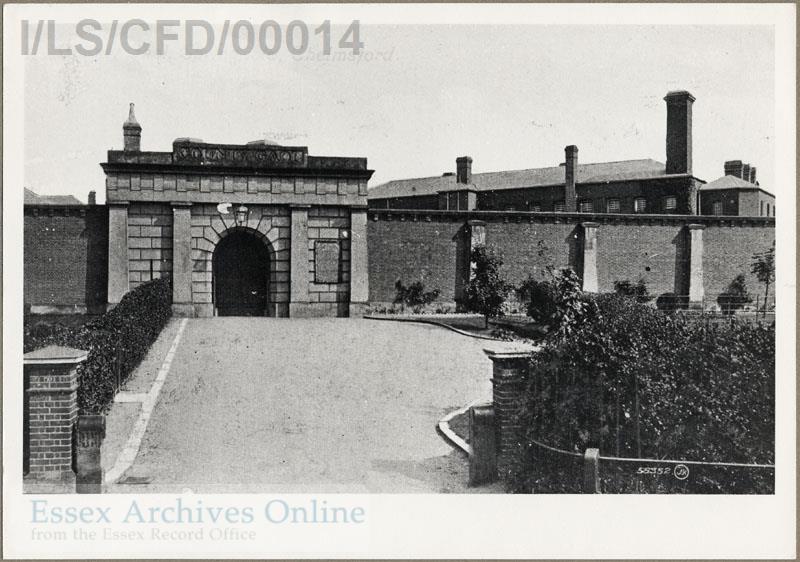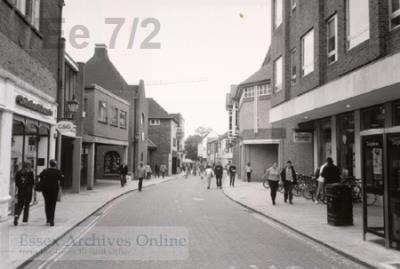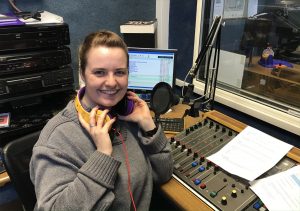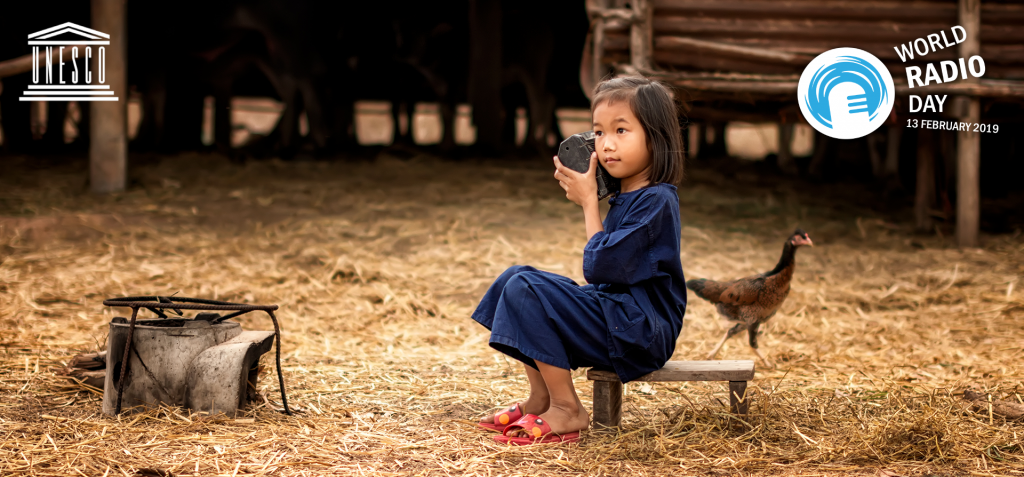13 February is World Radio Day: an annual day promoted by UNESCO to celebrate radio and the impact it can have. It marks the date in 1946 when the United Nations radio service was established, and it has been celebrated each 13 February since 2013. This year, the theme is ‘Dialogue, Tolerance and Peace’.
To Brits in 2019, perhaps this sounds pretentious. Isn’t radio just the poor cousin of television, and haven’t both been made redundant by online media? Who listens to radio now that there are podcasts and streaming music services?
To people in other parts of the world, radio can be a significant source of information or an arena to explore different viewpoints. Equally, in the UK, we risk underestimating and taking for granted how much we still get out of our radio service.
At the Essex Sound and Video Archive, we are fortunate to hold archived broadcasts of local radio programmes – primarily from BBC Essex, with a handful of recordings from other local stations. They are useful for researching local history, particularly for understanding local responses to events. Features also preserve random stories of weird and wonderful things. For instance, if it wasn’t for our prolific local radio producer Dennis Rookard, we would never have discovered Tino Morena, an Italian barber in Brentwood who also composed sacred choral music:
Tino Morena speaking to Dennis Rookard, SA 19/1/64/1 – come into the Searchroom to hear a sample of the music, which we cannot publish on the Internet for copyright reasons.
And then, of course, there are those early Paul Simon tapes, recorded for a folk music programme on Harold Wood Hospital Radio (SA 30/3/3/1 and SA 30/3/4/1 – also only available in the Searchroom for copyright reasons).
But local radio stations in Essex also produce meaningful programmes that encourage dialogue, thereby promoting tolerance and peace.
One of the most striking series in our archive is part of the BBC’s national ‘Sense of Place’ series, broadcast in 2002. Local radio stations produced a series of programmes about stories of everyday life in their area, which were broadcast on six successive Sundays from 28 April 2002. They aimed to give ‘insights into how different people live’ and explore ‘what makes our different communities distinctive and individual’ (from promotional BBC material, SA 1/2/8).
BBC Essex recorded seven programmes in their series (Catalogue Reference SA 1/2). Some of the most striking topics are examined below.
The fifth programme talked to Jews in the Southend area, where there is still a thriving Hebrew Congregation (SA 1/2/5/1). They spoke to a gentleman whose family were killed in the Holocaust, who shared his feelings when he goes back to visit Vienna where he once lived. They interviewed an Orthodox Jew who stands out because she always wears a head covering, but who had become a respected member of the Jewish but also wider Southend community. They also spoke to Sybil Greenstein, who regularly visited schools and hosted visits to the synagogue to tell people about her faith and demystify the religion. She got a great sense of accomplishment from informing others about what it means to be Jewish:
In the third programme, producer Anton Jarvis granted insight into an area perhaps few of us have ever experienced: daily life at Chelmsford Prison (SA 1/2/3/1).
 He spoke to a variety of inmates about their experiences, their first impressions, their hopes for the future. As to be expected, different people had different responses: some created home out of their cells, some did not want to personalise their cells in any way, but just focus on getting to their home outside. Some found it an extremely trying ordeal; some survived by finding humour in the bleak situation.
He spoke to a variety of inmates about their experiences, their first impressions, their hopes for the future. As to be expected, different people had different responses: some created home out of their cells, some did not want to personalise their cells in any way, but just focus on getting to their home outside. Some found it an extremely trying ordeal; some survived by finding humour in the bleak situation.
An inmate of Chelmsford Prison hopes for a better life when he gets out.
In the final programme, Anton spoke to people in vulnerable housing in Colchester about how they became homeless, what they were doing to survive, and whether they felt any sense of place and belonging (SA 1/2/7/1). Many expressed similar sentiments: they were not really living anymore, just getting from one day to the next, but with little hope because it was so difficult to rise up once you hit rock bottom. Mostly, they felt alienated from the rest of society.

Homeless people in Colchester share their experiences – including endless days of walking round town with nowhere to go.
These programmes gave voice to marginalised sections of the society. They allowed a close, personal insight into what life is like for other people, views we are unlikely to encounter anywhere else. This is the power of local radio.
It continues today. When we consulted BBC Essex about this blog post, they explained some of the challenges facing them in the current politically-charged and divisive climate.
…It’s our job as a radio station to remain impartial – but ensure everyone has a voice. Sometimes, when you use interaction as we do a lot on the phones, it can be quite intimidating to listeners to present an alternative view which is opposite to the majority. I spend a lot of time with presenters explaining how to make listeners feel all views are welcome and encouraging a contrary view to air.
We compiled a ground-breaking podcast series called Brexit Britain (available here). These are individual stories about Brexit, narrated by ordinary people. Guests ranged from a young supply teacher to a pensioner and a taxi driver to a fisherman. It was the first time so-called immersive podcasts had been commissioned by BBC local radio.
Your Essex, presented by Jodie Halford 7-10pm Monday-Thursday, aims to show listeners the sides of Essex they may not be familiar with. Whether that’s race, opinions on Brexit, gender, or class, the aim is to bridge divides. We are working on two pieces at the moment which aim to bring together polarised views. One is a woman whose life has been blighted by a traveller encampment talking one-to-one with a traveller and the other is a woman opposed to the building of a new mosque in the county, talking direct to the imam. The aim of these pieces is to fulfil the BBC’s “inform and educate” remit – as well as provide a rich listening experience.
Transmission of these pieces is scheduled for April.
While most of our collections come from BBC Essex, we must also celebrate the hard work of community radio stations, including hospital radio – often largely run by volunteers, eager to spread awareness and encourage cohesion within their local communities, as well as seeking to entertain. Most are currently recruiting volunteers if you want to get involved!
Community Radio Stations in Essex
BFBS Colchester: For Colchester, broadcast on 107. A Global Forces Radio station, BFBS has studios around the UK Garrisons as well as in many other MoD locations around the world. The Colchester studio concentrates mainly on 16 Air Assault Brigade and the three sites controlled from Colchester Garrison: Garrison HQ in Colchester, Wattisham Flying Station and Rock Barracks, Woodbridge. Interview subjects – and their core audience – tend to be serving personnel and their families. They also include veterans, the work of military charities, and work with the Garrison to enhance and publicise events. Colchester is currently working on four separate five-parters on objects held at the Airborne Assault Museum in Duxford, and associated with the 75th anniversaries of, respectively, D-Day, Arnhem, South of France and the Greek atrocities. These will be aired from April onwards.
BHR1287: Basildon University Hospital’s radio station.
CCR: For Chelmsford, broadcast on 104.4.
Colne Radio: For Wivenhoe, broadcast on 106.6.
FunkySX: For the Southend area, broadcast on 103.7.
Gateway 97.8: For the Basildon / East Thurrock area, who say: ‘At Gateway 97.8, we love celebrating World Radio Day. The theme this year is Dialogue, Tolerance and Peace – our broadcasts throughout February 13th will cover this theme. Make sure you listen to Basildon and East Thurrock’s community radio station to hear the fun things we have planned!’ They are also celebrating Basildon at 70 in their programming this year.
Harlow Hospital Radio: Broadcasting to Princess Alexandra Hospital, Harlow.
Hospital Radio Colchester: Broadcasting to Colchester General and Essex County Hospital, Colchester.
Hospital Radio Chelmsford: Broadcasting to Broomfield Hospital, Chelmsford.
Leisure FM: For Braintree, broadcast on 107.4, who say: ‘We broadcast only local GOOD news and events with the emphasis on “Good News”, and all feel-good music from the past 60 years.’
Phoenix FM: For the Brentwood area, broadcast on 98. Today’s programmes will include Carmel Jane Talks Business, celebrating female entrepreneurs; popular football show The West Ham Way; and Curveballs, showcasing the best of new music from local bands.
Radio Forest: Broadcasting to hospitals in Epping, Saffron Walden, Brentwood, and Harlow.
Southend Hospital Radio: Southend Hospital has been broadcasting for over 40 years. More than 60 volunteers provide a 24-hour broadcasting service, with a mix of live programmes, and information/entertainment for the patients. Some specialist shows include Southend Hospital Radio Kids

Presenter and Committee Member Alice Ryan in the studio at Southend Hospital Radio (image courtesy Southend Hospital Radio)
(presented by 11-year old Kara and Kathryn, for the youngsters on Neptune Ward), Sound of the Pirates (presented by Trevor Byford, re-living the offshore sounds of the sixties), plus Musical Moments (presented by Nick Bright and Jonny Buxton, with the smash hits of the stage and screen). As well as being available at Southend Hospital, you can listen live online. The station is a registered charity that relies on donations to stay on-air and fulfil its aims as spelt out in its Constitution: “…To relieve the effects of sickness, infirmity and old age by providing a local broadcasting service to the patients of Southend Hospital”.
Today, take some time to tune in to your local station. You might learn something new about your community, you might engage in dialogue with a different sector of society, and you might spread a little toleration and peace as a result.

